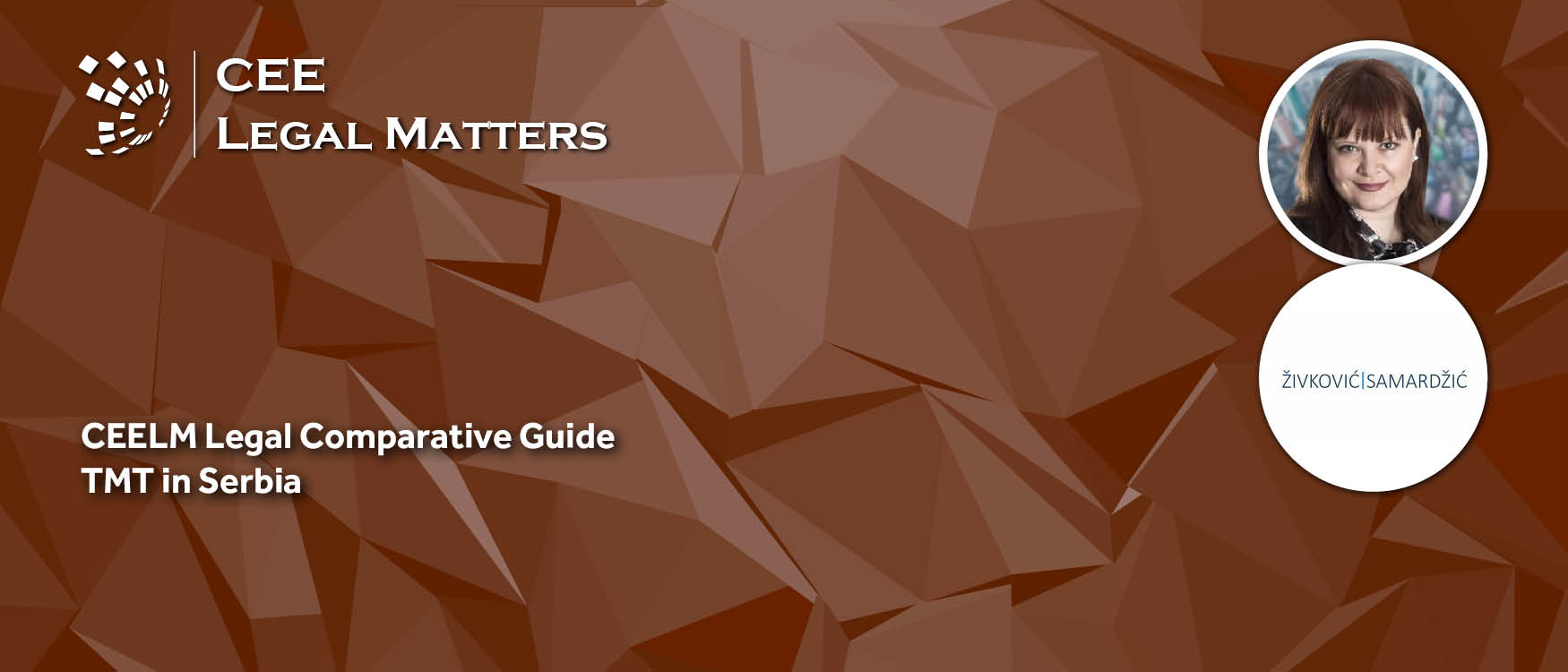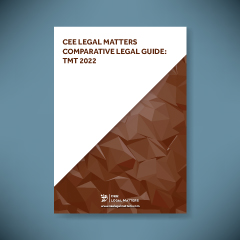Contributed by Zivkovic Samardzic.
1. Legal framework for writing and electronic contracts
a. What are the requirements in your jurisdiction to consider a document to be in writing? Are there any formal/technical requirements?
In Serbia, the general rule is that contracts can be made informally. The Code of Obligations (SFRY Official Gazette ns. 29/78, 39/85, 45/89 – decision CCY and 57/89, “Official Gazette SFY”, No. 31/93, “Official Gazette SMG”, No. 1/2003 – Constitutional Charter and “RS Official Gazette”, No. 18/2020) prescribes this principle and its divergence – when the law specifically envisages otherwise. That is, certain contracts, according to the law must be made in writing: surety contracts, contracts for construction, etc. Contracts lacking the prescribed form shall not have a legal effect.
There are certain technical requirements depending on the contract and prescribed form. When an obligatory written form of a contract is prescribed, a signature of the parties is also one of the elements/conditions to be fulfilled.
b. Are electronic documents [e.g., an email] per se considered to be in writing under your law?
According to the Law on Electronic Document, Electronic Identification and Trust Services in Electronic Business (“Official Gazette of the RS”, No 94/2017 and 52/21) an electronic document shall not be denied legal effect, probative force, and written form solely on the grounds that it is in electronic form. However, this is possible in cases where it is explicitly provided that an electronic form may not be equalized with a written form.
The law further regulates the issue of what documents can be considered originals. Firstly, an electronic document that is originally created in electronic form shall be considered an original. The same applies to an electronic document that has the same digital signature as an original electronic document. A paper copy of an electronic document is made by printing the external form of the electronic document. Scans of a paper document are considered a copy of a paper document.
c. What probative power paper and/or electronic documents have that are to be considered in writing?
The probative power of paper documents depends on whether they are issued by a public body or a private person. If a public body issued a document, it shall be considered true and authentic. However, a party in litigation proceedings can claim otherwise and, if the court has doubts as to the authenticity of the document, the public body may be asked for a statement. If a document is made by a private person, its authenticity, if disputed, must be proven by the party who submitted it as evidence.
Electronic documents have the same probative power as paper documents. Nonetheless, practice regarding the use of electronic documents in court proceedings is scarce.
d. What are the general rules and requirements to conclude a contract electronically?
Electronic contracting in Serbia is regulated by the Law on Electronic Commerce (“Official Gazette of the RS”, Ns 41/2009, 95/2013 and 52/2019).
There is a general principle that a contract can be concluded by electronic means i.e., in electronic form. An offer and acceptance can be given electronically – that is in electronic form. When an electronic message – electronic form – is used for the formation of a contract, such a contract cannot be denied a legal effect only because it has been made in an electronic form.
There are special requirements imposed on commercial subjects when offering their services and concluding a contract with consumers. Firstly, before the conclusion of a contract, they are obliged to provide information to the consumers on the procedure to be applied in the conclusion of the contract, contractual provisions, general terms and conditions if they are a constitutive part of the contract, languages, and codes of conduct. They must provide the technical means for the potential customer to recognize and correct any wrong input of data.
These requirements are also imposed on the contracting parties that are not consumers, but they can explicitly stipulate not to apply them.
These requirements are not imposed on electronic contracts concluded via email or other types of personal electronic communication.
The provider of goods or services is obliged to also make the text of the contract and general terms of conditions if they are a constituent part of the contract, available to the other contracting party so that they can be stored, used again, and reproduced.
e. Are there any sector-specific rules that define further requirements to conclude contracts electronically [e.g., contracting via an authenticated electronic channel, contracting via video chat, etc.]?
N/A
2. Digital signatures
a. Are there any laws regulating the use of digital signatures in your jurisdiction?
Electronic documents and electronic signatures in Serbia are regulated by the Law on Electronic Document, Electronic Identification and Trust Services in Electronic Business (“Official Gazette of the RS”, No 94/2017 and 52/21) and a number of subordinate pieces of legislation governing these issues in more detail. The Serbian legislator took a technologically neutral position when it comes to the definition of digital signatures. It did not use that exact phrase in the law but introduced a broader phrase – the of a qualified electronic signature and prescribed further conditions to be met by a signature to be called a qualified electronic signature:
“Qualified electronic signature means an advanced electronic signature that is created by a qualified electronic signature creation device, and which is based on a qualified certificate for electronic signatures, and which is issued by the provider of a qualified trust service in accordance with this law.”
For the time being, these conditions are met only by digital signatures.
b. Is there any difference between the different types of digital signatures in your jurisdiction?
Serbian law does recognize different types of electronic signatures, considering the level of security they provide.
First, there are electronic signatures. The law prescribes that it shall not be denied a legal effect and probative force solely on the grounds that it is in an electronic form or that it does not meet the requirements for qualified electronic signatures. This means that even a lower security level electronic signature shall be valid if it fulfills its purpose – if it is used in communication that does not require a high level of security.
Second, there are advanced electronic signatures that must meet the following requirements: 1) they must be uniquely linked to the signatory and/or the creator of the seal; 2) they are capable of identifying the signatory and/or the creator of the seal; 3) they are created using electronic signature/seal creation data that the signatory/creator of the seal can, with a high level of confidence, use under its sole control; 4) they are linked to electronically signed/sealed data in such a way that any subsequent change in the data is detectable. These signatures are more secure than simple electronic signatures.
Third, we have qualified electronic signatures, defined as advanced electronic signatures that are created by a qualified electronic signature creation device, are based on a qualified certificate for electronic signatures, and are issued by the provider of a qualified trust service in accordance with this law. This is the most secure signature for the time being, having in mind that the signatory uses a secure creation device and has their signature certified by a qualified trust service, the conditions for the operation of which are strictly prescribed by law. At this moment, these conditions are met by digital signatures.
c. What probative power each type of digital signature has in your country?
As already mentioned, electronic signatures shall not be denied probative power solely on the grounds that they are in an electronic form or that they do not meet the requirements for qualified electronic signatures. In the procedures where a handwritten signature is not required, an electronic signature shall suffice. However, when handwritten signatures are required, only qualified electronic signatures shall have the equivalent legal effect.
There are certain legal transactions that cannot be made in an electronic form and therefore electronic signatures shall not be used either.
d. Are there any specific groups of people that are required to have digital signatures [e.g., attorneys, notaries, government officials, etc.]?
No, there are no specific groups that are required to have a digital signature.
e. Are non-personalized digital stamps recognized in your country with probative power [e.g., digital stamps used by companies, government, or administrative bodies]?
For the time being it is not used in practice.
3. Digital archiving
a. Are there any laws regulating digital archives and digital archiving in your jurisdiction?
Yes. In Serbia, digital archives and digital archiving are regulated by Law on Archival Material and Archival Activity (“RS Official Gazette, No 6/2020) and Law on Electronic Document, Electronic Identification and Trust Services in Electronic Business (“Official Gazette of the RS”, No 94/2017 and 52/21) and subordinate pieces of legislation to these laws.
b. What are the main legal and technical requirements to digitally archive documents?
Creators and holders of archival material and documents in electronic form are obliged to carry out procedures and activities related to the management of documents and to use information systems that guarantee the protection, authenticity, trustworthiness, integrity, and usability of electronic documents.
As for the technical requirements, they are strictly prescribed by the Decree on Unique Technical and Technological Requirements and Procedures for the Preservation and Protection of Archival Material and Documents in Electronic Form (RS Official Gazette Ns. 107/2021 and 94/2022). However, the application of this decree has been postponed for 2024 because most of the participants in this procedure were not capable to meet the technical and technological requirements imposed.
c. Is there any difference in your country’s regulations between the digital archiving of paper and electronic documents?
In principle, digital archiving of paper and electronic documents is regulated by the same law. The main principles, obligations, and duties of creators and holders of archival material and documents are the same for both archiving both types of documents. Nonetheless, special provisions regarding electronic archiving were inevitable due to the specificity of the technology used for this type of archiving.
On the other hand, our legislator makes a distinction between electronic archiving and qualified electronic archiving. Qualified electronic archiving relates to the keeping of documents that are signed with a qualified electronic signature and stamped with an electronic stamp and documents whose uniformity with the original document and correctness of additionally included information was confirmed by a qualified electronic signature or stamp. The technical and technological standards for this type of keeping are governed by the Decree on the Procedures and Technological Solutions Used whilst Qualified Keeping of Documents (RS Official Gazette, 94/2018 and 87/2020).
d. Is any third party required to participate in the process of digital archiving in your country [e.g., a trusted service provider, government / administrative bodies, etc.]?
N/A.
e. Are there any sector-specific requirements and rules for digital archiving [e.g., archiving both the software and the related data to retrieve information in the financial sector]?
N/A.




